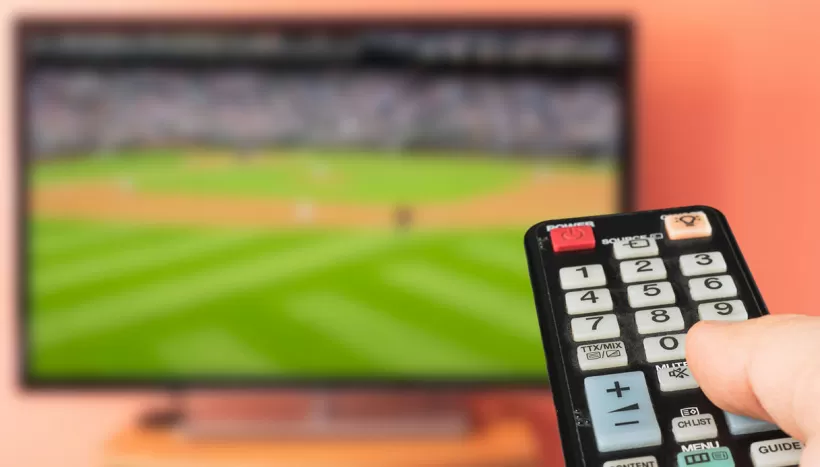The Italian Football League (Serie A) has published a tender for the assignment of television rights for five seasons. There are many innovations aimed at increasing corporate revenue. But TV and streaming service providers are going through a period of uncertainty.
Is the opening of a new phase?
In recent days, it was Tender for assignment of football rights For the next five seasons, starting from 2024-2025.
This is a selling proposition that introduces important innovations in relation to the past, which we will try to explore in depth here, all aimed at maximizing revenue for rights holders, in a particularly complex phase, marked by instability and uncertainty, above all on the part of broadcast rights purchasers, broadcasters and broadcast service providers Upon request.
It is clear that the sale of audiovisual rights in Serie A is an essential – and by far the most important – component of the football system’s revenue. Sports content itself is an essential part of television programming. In fact, their availability enriches the editorial offer, making it more attractive to both pay-TV subscribers and advertisers. The ways in which television broadcasting rights are marketed and the degree of exclusivity granted to the successful bidder have a crucial impact on strategic choices and the revenues of football clubs and television operators.
In this context, in recent years, and especially after the Covid-19 pandemic, there has also been an explosion of streaming services in Italy (such as Netflix and Disney +), which have also become important players in football (Dazn, Amazon), favoring the passage of the entire show , including the Sky display (via Now) and the Mediaset display (via Infinity), towards the online world and the online world, despite the many controversies that all this has caused in terms of the quality of the display and the level of (dis)satisfaction of the users.
Meanwhile, the scenario changed again. SVOD model (Video on demand subscriptions) has now reached maturity and is not going to grow at the levels of previous years: focusing only on these topics to replace declining revenues from “traditional” pay-TV operators working via satellite and digital terrestrial can be very risky.
Flexibility and the role of different exclusivity
To avoid depreciation compared to the past, the Lega Serie A tender intervenes in two aspects. The first relates to the possibility of extending the ownership of the exploitation rights to the purchaser for up to five years, interfering at the same time with the very concept of exclusivity, proposing a reduction.
Exclusivity is a vertical constraint, with potential anti-competitive results, but precisely for this reason it is at the same time the main attraction for the right holder – which increases revenue – and for the buyer – which prevents competitors from offering the same (much) product. So it was the main factor that determined the strong and continued growth in the purchase price of rights. On the other hand, it also requested the necessary antitrust intervention at the European level, linked to the duration of exclusive rights for a maximum of 3 years (and in the past, if subject to obligations, such as Sky, a maximum of 2 years) and competitiveness, with the obligation not to transfer exclusivity on all packages to One buyer, leaving at least one for competitors.
The possibility now envisioned by Bid to extend the term of exclusivity to five years is only possible if more subjects are purchased than all or nearly all of the lots, otherwise one would have to revert to the earlier model of world exclusivity limited in time.
This is why bundle offers offer all possible options, with the goal of extracting maximum value from every person interested in buying.
However, at the same time, they should take into account the above, essentially showing a preference for long-term selling that respects the principles of mutualism and does not pose antitrust problems related to duration, allowing buyers to consume over a longer period – five years, in fact – costs Big required to buy the rights.
So Lega Serie A has prepared an “all-in-one” tender, with eight packages and an even larger number of variants within each.
Here it would be impossible to go into detail about each one, what can be said is that they range from sharing (shared exclusive) to ten matches a day for two players, or nine. In cross-exclusivity with one total exclusive, to other forms where exclusivity prevails, with packages ranging from 7 to 10 (7+3, 8+2, 9+1, 10) games per day to the highest single bidder, and even more creative 6 -3-1, with 6 in total exclusive to one operator, 1 to another, also unencrypted, and 3 in joint exclusives.
who will win?
The prevailing notion at the moment is that Dazn and Sky are the subjects of greatest interest, with Amazon moving towards a smaller exclusive package, as is the case today with the Champions League, while Rai, Mediaset and Discovery are still undecided about what to do.
communications companies (communications companies), after what happened in the last auction and the huge negative repercussions on Tim, they seem to be out of the game for the time being.
The goal announced by the League is to reach 1.2 billion euros annually, but in reality exceeding the value of the previous auction (940 million) or even reaching the figure of one billion seems to be a more realistic point. On the other hand, the situation at the moment is not very prosperous and Lega Calcio itself leaves the way open for its own channel that has been announced for a long time, but has never been implemented until now. Moreover, football has historically been a powerful component of innovation and a vector of transformation of the television system.
In mid-June, the shows will be closed and it will be possible from that moment on to understand whether, despite all the efforts of the League, it will be necessary to switch to another model for the exploitation of football’s audiovisual rights. , based on forms of non-mediation, perhaps more in line with the profound changes in recent years and the unstoppable transformations that will represent the following transformations.
The voice belongs to everyone: support it!
Lavoce.info does not host advertisements and, unlike many other information sites, access to our articles is completely free. The editors’ commitment is voluntary, but donations are necessary to support the costs of our site. Your contribution will enhance our independence and help us improve our offering of free, professional and free information. Thanks for your help!
Augustus Britta

“Alcohol enthusiast. Twitter ninja. Tv lover. Falls down a lot. Hipster-friendly coffee geek.”



